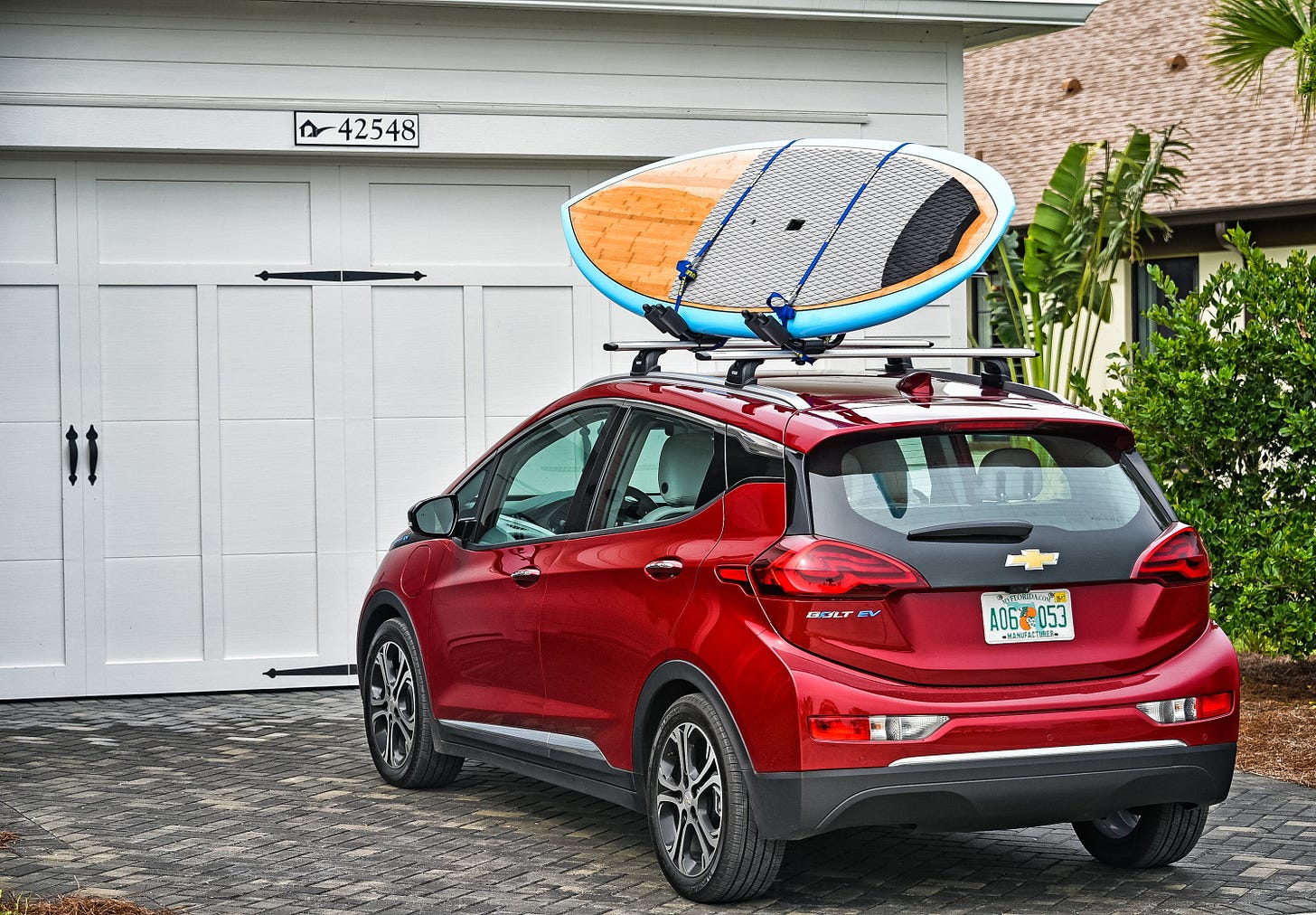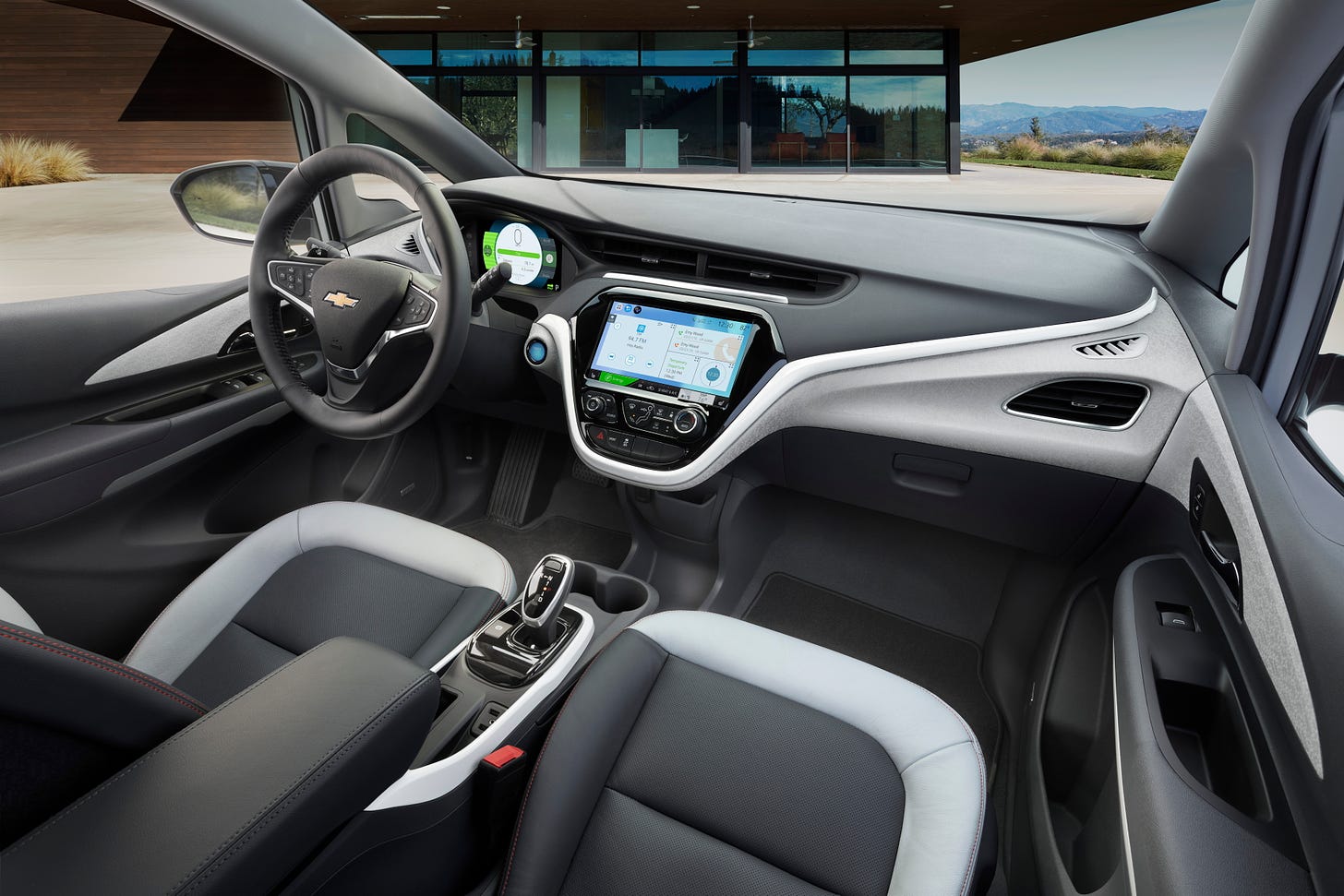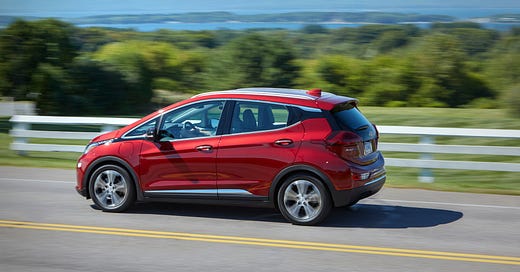
SAN DIEGO — Southern California is the electric car capital of America. Thanks to sky-high gasoline prices, enticing state-level tax incentives, a free pass for EV drivers to travel solo in SoCal's ubiquitous carpool lanes, endless traffic (where EV's are most efficient) and a general acceptance and desire for "greener" lifestyles, you can't swing a charging cable without hitting a Tesla or a Nissan Leaf or the car I'm reviewing this week: the 2020 Chevrolet Bolt EV.
Also, just to be clear, the official name of the car is "Bolt EV." I assume that's to distinguish it from the similar Chevy Volt which is not an EV but a PHEV or plug-in hybrid electric vehicle which has both a gasoline engine and a full electric mode that can take it more than 50 miles on a charge. I used to own a Volt and GM saw fit to cancel it nearly two years ago for some reason.
Just know that if you buy a Bolt EV, you'll spend the entirety of your time with the car clarifying to friends and family that you have the Bolt-not-the-Volt-no-Bolt-with-a-B-like-battery.

The Bolt EV is the perfect commuter car for SoCal and it might be the perfect commuter car for everywhere else, too. With enough range to get through any day, plus plentiful room inside (there's way more room than you would expect, especially in the trunk and rear seats) and truly fantastic visibility from the enormous windows and high roofline, the Bolt EV is worth a look for anyone spending some time behind the wheel every day.
So the Bolt is a great electric hatchback, sporting an EPA-estimated range of 259 miles, which is up 21 miles from prior year models. On a dedicated Level 2 charger, it can fill its electric tank in roughly ten hours and on the optional DC fast charger it can add approximately 100 miles of range in 30 minutes. This is where things get tricky, and why I'm going to abandon talk of the Bolt EV itself for the rest of this piece. If, after reading it, you fancy checking out an electric car, the Bolt EV is a terrific option and there are some seriously good deals to be had right now at many Chevy dealers around the country.
EVs are complicated and tricky. To the uninitiated, electric cars are a bit like smoking meat. There's a lot of voodoo involved, everyone has their own opinions about the right way to do it even if they've never done it, and the people who love it really, really love it.

But buying the car is only half of the story. You also need to charge it, preferably with a dedicated 240-volt Level 2 charger. This provides a much higher rate of charge than a standard 120-volt outlet, and is basically required for owning a full-EV.
If you never drive more than 200 miles in a day and you have a parking garage (and you own your own house), an EV like the Bolt is a great option. You drive it around all day, draining the battery, then when you get back home you plug it in. Because your car is stationary for a lot more of the time than you're actually using it, this means there's plenty of time for it to charge back up again.
The Level 2 charger can be purchased from a whole boatload of companies including consumer-friendly brands like ChargePoint and JuiceBox, though I bought a simple ClipperCreek unit to charge my Volt.

The concept of charging is the scariest part for potential new EV-buyers, especially if you don't have a (likely very) enthusiastic friend helping you on your EV journey. You need to have a place to install the charger, which means ideally you have a garage and you own your own home. Renting means getting the permission of your landlord and makes things complicated.
Then you need an electrician (unless you're really handy, in which case you don't need me to explain it to you) to run the line to where you want the charger, which might also involve pulling permits or upgrading your electrical box or — you see where I'm going?
EVs are complicated, but they don't have to be. Buy car. Install charger. Never buy gas again. Though, to be honest, I'd probably only buy an EV as a second-car. I bet GM would be happy to sell you a new, road-trip friendly Chevy Tahoe to go with it, though.




I drove one of these a couple of years ago when Chevy brought them out to Burlington for journalists to test drive. Maybe fall 2017/summer 2018? I had a lot of fun driving one, but they're very... boring cars, which I figured was the point of that: they're not a radical change for a regular driver who isn't ready for what Tesla offers.
I'd consider getting one a little down the road, although someone I know here noted that the battery loses out on some range pretty quickly in the middle of winter.
Good review. You note that the Chevy Bolt is really 2nd car territory for most. People have not really said that about the Tesla Model 3 which at the basic model gets just slightly less range , 250 miles. Is the Bolt more of a second car than because it is inherently less fun to drive than a Tesla, which at $39,900 is probably its main competition (other than the Nissan Leaf or the new Volkswagen box that is coming out mid next year).
Also does the Bolt get the full $7,500 Fed tax credit? I know the Teslas do not.